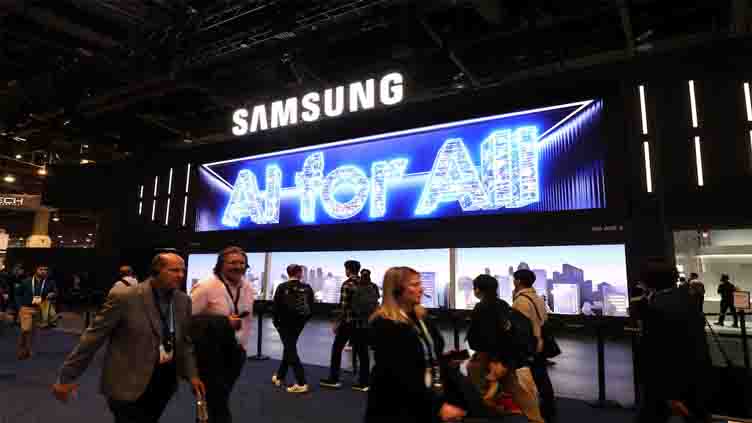Samsung offers plan to speed up delivery of AI chips

Technology
Samsung expects global chip industry revenue to grow to $778 billion by 2028
SEOUL/SAN JOSE (Reuters) - Samsung Electronics said its contract manufacturing business plans to offer a one-stop shop for clients to get their AI chips made faster, integrating its global No. 1 memory chip, foundry, and chip packaging services, to harness the AI boom.
With clients working with a single channel of communication that directs Samsung's memory chip, foundry and chip packaging teams at once, the time it takes to produce AI chips - usually weeks - has been cut by around 20%, Samsung said on Wednesday.
"We are truly living in the age of AI - the emergence of generative AI is completely changing the technology landscape," said Siyoung Choi, President and General Manager, Foundry Business, at a Samsung event in San Jose, California.
Samsung expects global chip industry revenue to grow to $778 billion by 2028, boosted by AI chips, Choi said.
At a briefing with reporters ahead of the event, Executive Vice President of Foundry Sales and Marketing Marco Chisari said the company believes OpenAI CEO Sam Altman's loose projections on soaring demand for AI chips are realistic.
Altman has told executives at contract chipmaker TSMC he wanted to build roughly three dozen new chip factories, Reuters has previously reported.
Samsung is one of the few companies that sells memory chips, offers foundry services and designs chips under the same roof.
That combination has often worked against it in the past, as some clients were nervous that doing business with its foundry might benefit Samsung as a competitor in another field.
However, with skyrocketing demand for AI chips and the need for all the chip parts to be highly integrated to train or infer huge amounts of data fast by using less power, Samsung believes its turnkey approach will be a strength going forward.
The South Korean tech giant also touted its cutting-edge chip architecture known as gate all-around (GAA), a type of transistor architecture that helps improve chip performance and reduces power consumption.
GAA is seen as important to keep making more powerful chips for AI as chips become finer to the point of pushing the boundaries of physics.
Although competitors such as global foundry No. 1 TSMC are also working on chips using GAA, Samsung started applying GAA earlier, and said it plans to mass produce its second-generation 3-nanometre chips using GAA in the second half of this year.
Samsung also announced its latest 2-nanometre chipmaking process for high-performance computing chips, which places power rails on the backside of the wafer to improve power delivery. Mass production is slated for 2027.


